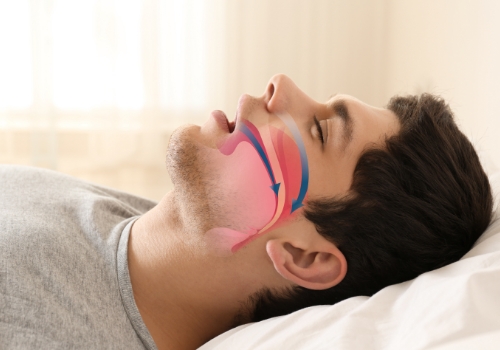Suite #23,
Tempe, AZ 85282
9:00 am - 5:00 pm
9:00 am - 5:00 pm
9:00 am - 5:00 pm
9:00 am - 5:00 pm

Obstructive sleep apnea (OSA) is considered to be the most common form of sleep apnea and affects millions of people nationwide. When the airway becomes blocked as a result of the tongue and/or throat collapsing throughout the night, patients will begin to experience a lack of oxygen, causing them to wake gasping for air or feeling a choking sensation. Although frightening and dangerous if left untreated, obstructive sleep apnea in Tempe can be remedied with the help of a customized oral appliance.

If a person is overweight or obese, there is a greater risk they will develop OSA. Because of the fat accumulations that can form on the throat, additional pressure is placed onto a person’s airway, causing restriction and eventually, obstruction. Other potential causes of OSA include smoking, frequent alcohol consumption, and even genetics.

Individuals diagnosed with OSA will not only experience interrupted sleep that causes them to wake multiple times throughout the night in an attempt to breathe, but other likely complications include high blood pressure, hypertension, heart attack, and stroke. Failing to seek treatment for OSA can lead to regular daily fatigue that inhibits a person’s ability to drive safely. It can also result in fatality.

If you are struggling to get the high-quality rest you need, our team is ready to assist you. However, we know that you might hesitate to pursue treatment without first gathering more information. To help you out, we have put together a list of answers to some FAQs about obstructive sleep apnea (OSA). If your specific questions are not addressed here, please reach out to us directly. We are eager to speak with you!
It is important to understand that snoring and OSA are two different things. Snoring is the sound that occurs when air pushes past tissues in the throat, causing them to vibrate. For many people, snoring is nothing more than an occasional annoyance. OSA, on the other hand, is a serious medical condition that is marked by repeated pauses in breathing throughout the night.
With that being said, it is important to note that loud, frequent snoring is often an indication that OSA is present. If you or a loved one is bothered by this type of snoring, it would be wise to seek professional care.
An apnea is an episode where a person stops breathing during sleep, whereas a hypopnea is an episode where a person’s breathing is reduced during sleep. These events are typically longer than 10 seconds and can last for up to 2 minutes.
Apneas and hypopneas can occur multiple times each hour. Mild cases of OSA may have 0 – 15 events per hour, while severe cases may experience 30 or more.
If you find your CPAP machine to be uncomfortable, it is certainly worth your time to look into oral appliance therapy. Often, in mild to moderate cases of OSA, an oral appliance can completely replace a CPAP machine.
However, in other cases, a CPAP machine may still be necessary. It can be used in combination with an oral appliance, meaning that the machine can be used at a lower, more comfortable setting.
Obesity is a significant risk factor for obstructive sleep apnea. Excess fatty tissue can restrict the airway, leading to disruptions in breathing throughout the night. Therefore, for some individuals, their OSA symptoms can be greatly reduced — or even disappear altogether — if they lose weight.
However, it is important to note that OSA can afflict people of all body shapes, sizes, and compositions. It can be caused by a number of factors, so weight loss is not guaranteed to make it go away.